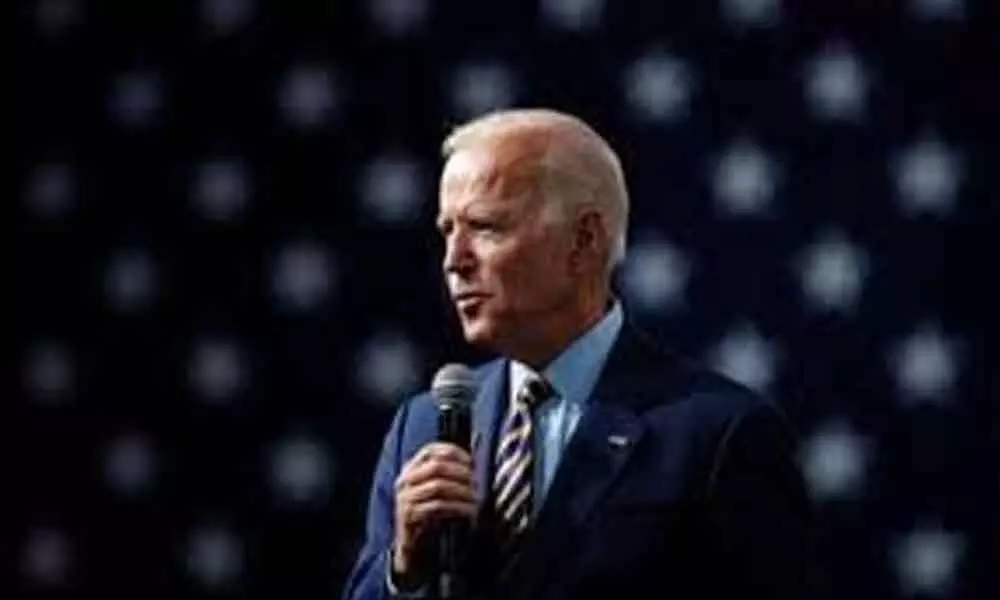How Biden should deal with Iran as it builds arms stockpile
image for illustrative purpose

After international inspectors reported that Iran has yet again significantly increased its stockpile of low-enriched uranium, President Donald Trump considered attacking the Islamic Republic's nuclear facilities. He was reportedly dissuaded by his top aides, including Secretary of State Mike Pompeo and Vice-President Mike Pence. Although both of them are generally thought to be hawkish on Iran, they seem to have calculated that an attack on nuclear installations could spark an uncontrollable conflict.
Incoming president Joe Biden will inherit an extremely difficult conundrum regarding Iran. For all its flaws, the 2015 nuclear agreement between the Islamic Republic and world powers had at least paused the Iranian charge towards a nuclear arsenal. Now Tehran is reconstituting its nuclear capability, despite the Trump administration's hard-hitting economic sanctions.
That Trump even considered, then called off, strikes on Iran's installations demonstrates the limitations of his strictly coercive approach: Its logic leads inexorably towards a war no one wants. Trump has spoken of the need, ultimately, of a new agreement with Tehran, but there is no framework for any dialogue that might lead to a deal.
There is every indication Biden will look for an early return to diplomacy with Iran, but that's going to be extremely difficult. Trust is shattered on both sides. First, as soon as the ink was dry on the 2015 nuclear deal, Teheran intensified its destabilizing and predatory regional behaviour. Then Washington walked away from the deal.
Many Democrats have urged a return to the deal, also known as the Joint Comprehensive Plan of Action (JCPOA). That may be how renewed diplomacy is politically marketed to all those who opposed Trump's unilateral abrogation, including the Iranians and the other signatories.
But in truth, the original Obama deal is finished. It was based on an exchange of sanctions relief for a 10-15 year pause in Iran's nuclear activities. Because both the timeline and the relief have been effectively invalidated over the past two and a half years, any "return" to the original agreement will in fact require new negotiations.
Iran is demanding compensation for economic harm. But they know that's out of the question. Their real policy is plainly a compliance-for-compliance return to the terms of the JCPOA. But compliance with what?
If Iran is really willing to dismantle its reconstituted nuclear program, that will require some time and verification. Agreeing to those terms will be a strong indication of Tehran's seriousness.
Iran will certainly demand the removal of all new sanctions imposed by the Trump administration. But many of them were issued under counterterrorism and other administrative provisions. These cannot and should not be simply or quickly rescinded. They provide Biden administration a significant potential leverage with Iran that must be used to full advantage. One of the most difficult manoeuvres facing the Biden foreign-policy team will be easing sanctions just enough - and quickly enough - to facilitate serious new discussions, without squandering this leverage.
American terms for further sanctions relief must include extending or modifying the so-called sunset clauses in the JCPOA, which would allow Iran to emerge from the deal just two or three months away from breakout range to a bomb less than a decade from now.
Biden officials will also have to secure the buy-in of two key constituencies that felt excluded from the original agreement. Congress will have to be minimally comfortable with the new understandings. And American partners in the Middle East - especially Saudi Arabia, the United Arab Emirates and Israel - must be reassured at every stage that their core security interests will not be jeopardized, and that there will be no surprises in any new deal.
But these countries must also be reminded that the United State cannot allow Iran to have a nuclear weapon and that Biden will use all available means to achieve that goal diplomatically. This is ultimately in their interests as well.
One means begin a new dialogue would be with measures designed to help the Iranian people cope with the coronavirus pandemic. Significant humanitarian gestures would send an important message without unduly rewarding the Iranian regime or placing anyone's security at risk.
Once a discussion, even if it is oblique, is resumed, the key for the Biden administration will be to build on the workable formula developed in the JCPOA, of economic carrots for nuclear restraint, while utilizing the new leverage provided by the Trump sanctions. The goal must be a compliance-for-compliance arrangement as the basis for additional, more-for-more agreements that reckon with Iran's missile program and support for violent, sectarian non-state militias in neighbouring countries.
The effort should be sustained, patient and serious. But it should also never be lost on anyone that Iran, internationally isolated and its economy shattered, needs an understanding more than the U.S. And although Trump was wise to decide not to use them, Washington retains options Iran simply does not have. (Bloomberg Opinion)
Contact the author of this story at Hussein Ibish at [email protected]

